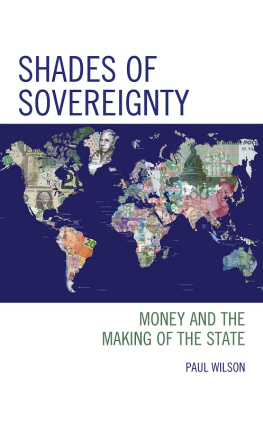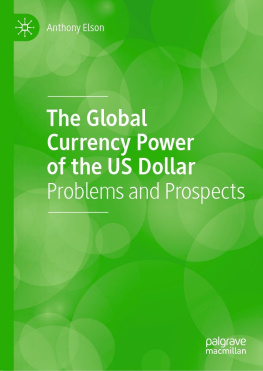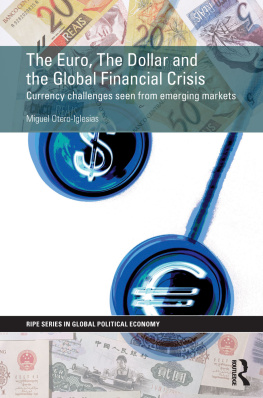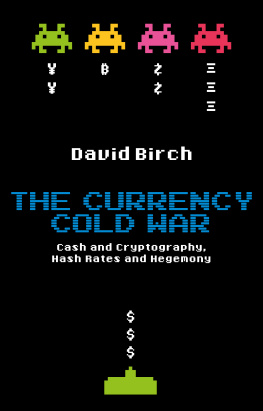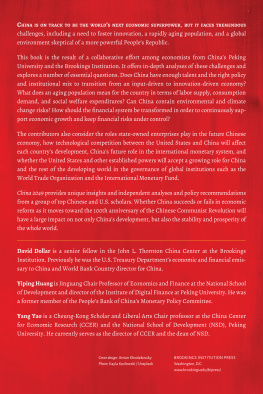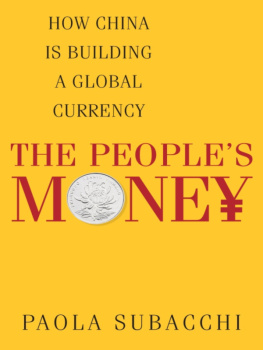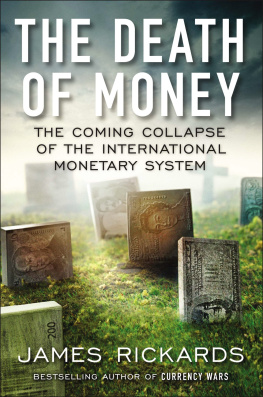Table of Contents
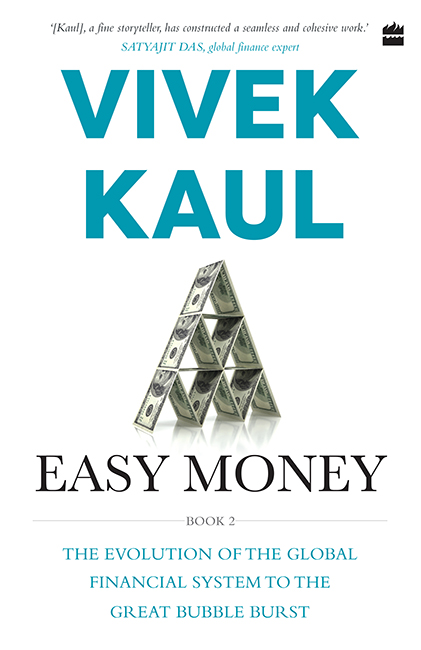

To Ma and Papa, for letting me be!
Contents
O ne of the lessons of history is that we never learn from it. This has never been truer than with recent economic history. The story of twentieth-century global economics has been one of a periodic build-up in money supply that led to booms, followed by busts. This has not prevented economists from routinely prescribing more money printing to increase growth and decrease unemployment. Over the last two centuries, the world has tried everything from adopting the gold standard to printing endless amounts of fiat currency (as is the case now).
It has, as a result, experienced everything from hyperinflation to depression. But try getting a consensus among economists on what needs to be done in a particular situation, and you will get suggestions and opinions stemming basically from an ideological orientation nothing is learnt from actual economic experience. We have Paul Krugman arguing that the Federal Reserve of the United States has not printed enough money since unemployment is still high and inflation low, while the Republican Right says the government is getting too big, and spending and debt must be cut. Despite massive budget deficits, the Right will want taxes cut, making it impossible to square the circle.
If you want to read about all the experimentation and follies of governments and economists involving the use and abuse of money over the ages, you can do no better than to read Vivek Kauls eminently readable Easy Money. The first part of this book, published in 2013, spoke of the prehistory of money to its status before the First World War. In this volume, Kaul brings you closer to the evolution of money in the twenty-first century. He ends with the dot-com bust which happened in the early years of the millennium.
Today, not only the United States but also the European Union and Japan are working their currency printing presses to the limit, with the belief that when the economy is so sluggish, unemployment so high, and inflation so low, a little more cannot hurt. Those who warn about the build-up of excessive debt and the extraordinary puffing up of central banks balance sheets will be shouted down as Cassandras out of touch with reality. In fact, everyone is in denial on the dangers of excess money despite three events in recent memory that signal this danger: the Asian financial crisis of the late 1990s, the dot-com collapse of the last decade, and the Lehman crisis.
Why does strong evidence of financial folly not register with politicians and central bankers? The answer has to lie in the real-world calculations of the political economy. Nobody wants a bust or deflation during his watch and politicians and bankers will do everything to postpone the event by printing money endlessly. Even if it results in inflation as we are witnessing in India right now.
This leaves us the question of why economists fall into the same trap that politicians and central bankers do. The answer is probably that busts are precipitated either by significant events (like large sub-prime defaults) or by shifts in public expectation. And public expectations take a long time to switch gears. Anyone predicting a global bust in 2003, when the global boom took off, would have been wrong for five years; similarly, those who have warned of a crisis due to quantitative easing of policies since 2008 continue to be wrong even at the end of 2013.
But all bubbles ultimately burst. When the music stops, the ones holding the pillow will be caught out. Each person thinks this will not happen on their watch. The problem is that no one can predict the financial doomsday with any degree of accuracy, and this gives politicians and economists the right to pretend that this time, it is different.
Vivek Kauls Easy Money will tell you how wrong this conclusion is. But dont expect policymakers to change their behaviours when they are told the truth. They will simply deny or ignore it.
R. Jagannathan
Editorial director, Swarajya
O n Monday, 29 September 2008, I walked into the Mumbai office of the Daily News and Analysis (DNA), the newspaper that I used to work for, wondering what to write for the day. As the personal finance editor, it was my job to fill up (for the lack of a better expression) the personal finance page every day. But it was one of those Monday mornings (actually afternoon!) when one really did not feel like working. And furthermore, for once, I hadnt a clue of what I wanted to write. I had also run out of expert columns that I used to save precisely for such dry days.
Two weeks earlier, at 1.45 a.m. on 15 September 2008, Lehman Brothers, the smallest of the big investment banks on Wall Street, had gone bust and had filed for bankruptcy. Since then, business journalists in India had turned into jargon-spewing monsters. Any random write-up on the financial crisis that was unfurling in the United States would have words such as sub-prime, securitization, collateralized debt obligations (CDOs), alternative A-paper (Alt-A), slice and dice and what not.
Going through one such article on that day, I wondered whether people writing this stuff actually understood the terms they were using so liberally. But more than that, I found it rather embarrassing that I did not understand most of these terms except securitization, on which I had written now and then, from the time I started writing full time in late 2004.
That gave me my idea for the day. I thought, Let me write a piece which tries to explain some of these terms that were being used. It was an act of pure self-indulgence. By then, I had realized that if one really wanted to understand something complicated, the best way to do it was to write about it.
And so I did. But as soon as I had started writing I realized that there were chances that the article would turn out to be one of the most boring ones that I had written. All I was trying to do was explain a series of terms to myself and hopefully the reader. The trouble was that there was no integrating theme or even a context for that matter. And all said and done, I was writing for a newspaper and not compiling a dictionary.
Just as I was about to give up, another brainwave saved the day. I wove a fictional story around the financial terms I was trying to understand, to build some overall context and at the same time to be able to explain all the terms that I wanted to. And that is how I came up with two unnamed characters, a man and a woman, in conversation.
The article was headlined Why Is the Wall St Resting in Peace? and was scheduled to appear the next day, on 30 September 2008. It started with a woman calling a man to ask, Why is the Wall Street going bust? And during the course of the flirtatious duologue that takes place at an ungodly hour, 2.30 a.m., the man explains the trouble erupting at Wall Street and elucidates the meaning of several esoteric terms that had been troubling me, the writer of this piece.
I was very happy at the end of the day to have been able to write something different and more importantly, to have been able to fill up the space. Thankfully, I worked with editors who did not have fixed notions about what a newspaper should carry. Therefore, they let it go.
When I came to office the next day I was in for a surprise. My mailbox had some twenty-five emails from readers saying that they had loved the piece. This had never happened before; even what I thought were my best pieces would get no more than five to ten reader emails, spaced over a couple of days. But more importantly, what I understood from the response was that I was not the only one who had not been able to comprehend the pecuniary parlance. There were others like me out there. What the feedback also told me was that this whole concept of readers being more interested in what was happening in their own city and country was not always entirely true.


